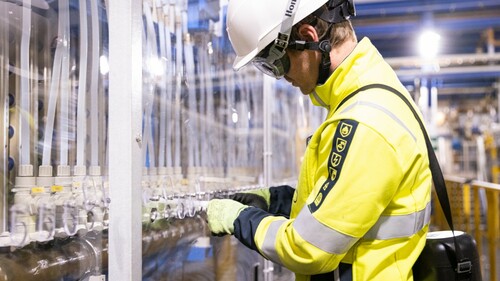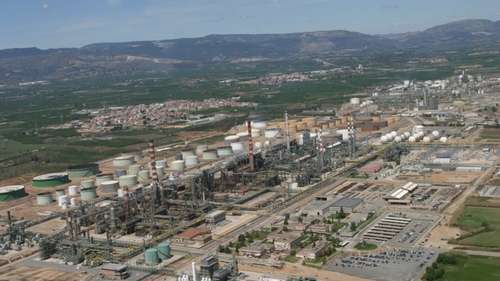Covestro successfully starts up a new world-scale chlorine plant in Tarragona, Spain
Covestro has successfully started up a new world-scale facility for the production of chlorine in Tarragona, Spain. It is the first world-scale production plant for chlorine based upon the highly innovative and energy efficient ODC (oxygen depolarized cathode) technology invented by Covestro and its partners. The new plant ensures an efficient, permanent and independent supply of chlorine and caustic soda to MDI production in Tarragona. This will strengthen the European production network for MDI – a precursor for the manufacture of rigid polyurethane foam used to insulate refrigeration appliances and buildings. The 200 million euro investment has created 50 new jobs on site.
"The successful start-up of the new plant is good news, both economically and ecologically, for Covestro as well as for our site in Tarragona", said CEO Dr. Markus Steilemann. "The plant demonstrates how new technologies enable us to advance our vision of the circular economy and further reduce resource consumption while increasing the robustness and efficiency of our production network."
The new chlorine facility is the first industrial-scale plant in the world to use the innovative oxygen depolarized cathode technology (ODC). The technology has been developed by Covestro in collaboration with thyssenkrupp nucera. Compared to the currently predominant conventional chlor-alkali electrolysis, the new process requires a lower voltage, which results in energy savings of up to 25 percent. At the new plant in Tarragona, this can avoid up to 22,000 metric tons of CO2 emissions per year compared with existing processes – based on the energy mix at the start of construction planning in 2018. The new plant will thus make an important contribution to Covestro’s goal of being operationally climate-neutral by 2035.
The chlorine is used on site as a raw material for the production of MDI, a precursor for the manufacture of rigid polyurethane foams as used for producing energy-efficient insulation solutions for buildings and refrigerating devices. In 2019, the global MDI market had a volume of around 7,500 kilotons and is expected to further grow in the long term. In addition to chlorine, the plant will also produce caustic soda for the Iberian and European markets. Both chlorine and caustic soda are two indispensable basic chemicals for the chemical industry, and are also key raw materials for many other strategic sectors.
Andrea Firenze, General Manager of Covestro in Spain, added: "The arrival of this plant allows us to significantly strengthen Covestro's MDI production in Tarragona. Being able to have our own, independent supply of chlorine gives us the ability to further increase the efficiency and competitiveness of our MDI plant. Moreover, the new plant also strengthens Tarragona’s position as the benchmark for chemistry in southern Europe, promotes the economic and social development of the area and both directly as well as indirectly generates new jobs. I would therefore like to sincerely thank all my colleagues who have contributed to the success of this project with their work."
Categories
Investments
2017-12-11
€ 200 mln at Chemmed Cluster Tarragona (ES)Countries
Companies
Latest news
INEOS launches €250m investment supported by the French Government to secure the future of French industry at Lavera
The project marks the first phase of a long-term regeneration plan to reduce emissions, boost reliability, efficiency and competitiveness, with support of the French State.
Hycamite’s technology to decarbonize shipping awarded AiP by industry leader DNV
Kokkola Industrial Park →Hycamite’s proprietary Thermo-Catalytic Decomposition (TCD) technology offers a new approach to producing clean hydrogen by breaking down methane, the primary component of liquefied natural gas (LN...
Clariant catalysts will power the Ecoplanta: Europe's first waste-to-methanol plant
Chemmed Cluster Tarragona →Repsol is building Europe’s first plant to produce renewable methanol from urban waste The facility will use Enerkem gasification technology to produce 240 KTA of methanol Clariant will supply cata...
Lilly plans to build a new $3 billion facility to boost oral medicine manufacturing capacity in Europe for patients worldwide
Netherlands site will bring 500 manufacturing and 1,500 construction jobs while further strengthening Lilly's global supply chain


